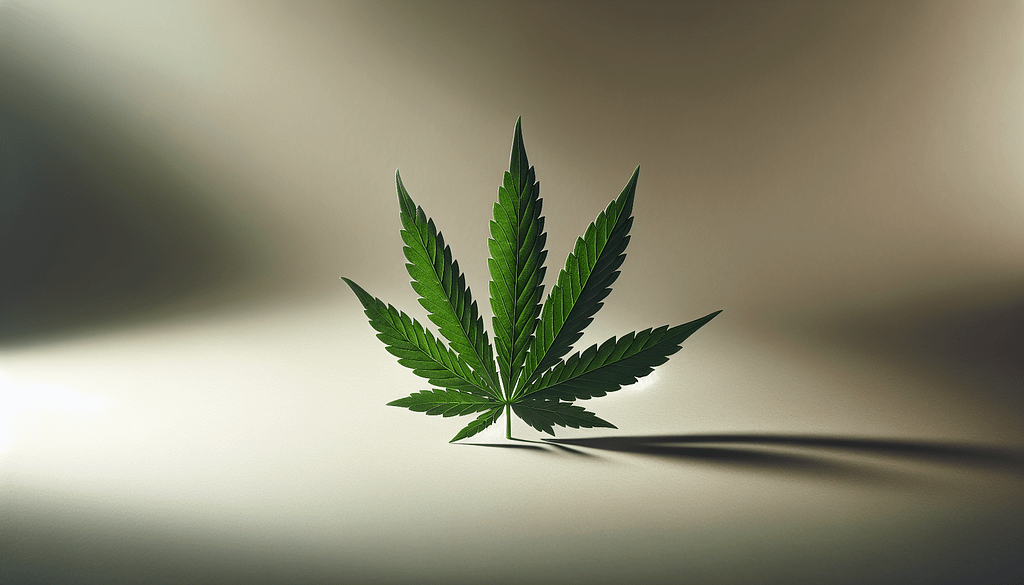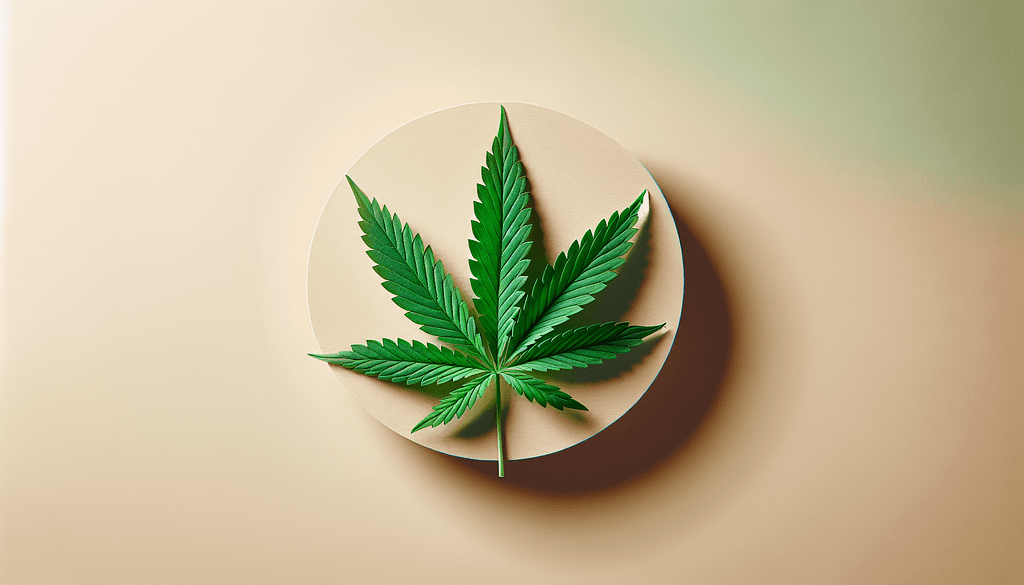As an Amazon Associate I earn from qualifying purchases.
Discover how CBD impacts mental health. Learn its benefits for anxiety, depression, sleep, and PTSD. Dive into the science, usage, and future of this popular compound.
CBD and Its Role in Mental Health
In recent years, CBD has become a buzzword in the wellness community. But what exactly is CBD, and how does it impact mental health? You’re about to embark on a detailed exploration to understand this popular compound and its potential benefits for your mental well-being.
What is CBD?
CBD, short for cannabidiol, is one of the many compounds found in the cannabis plant. Unlike its cousin THC (tetrahydrocannabinol), CBD is non-psychoactive, meaning it won’t get you high. This distinction has positioned CBD as a promising option for those seeking relief from various conditions without the mind-altering effects associated with marijuana.
The Science Behind CBD
The endocannabinoid system (ECS) is a complex cell-signaling system identified in the early 1990s. Although much about the ECS remains unclear, we do know it plays a role in regulating a range of functions and processes, including sleep, mood, appetite, and memory. CBD interacts with the ECS, specifically the CB1 and CB2 receptors in the brain and immune system, which suggests how it could influence mental health.
ECS and its Impact on Mental Health
The ECS helps maintain a state of homeostasis in your body. How does it do this? Primarily through the receptors like the CB1 and CB2. When CBD interacts with these receptors, it can potentially modulate various mental health conditions like anxiety, depression, and PTSD. By promoting balance in neurotransmitter levels, CBD can offer a more natural way to maintain mental well-being.

Benefits of CBD for Mental Health
The list of potential benefits that CBD offers for mental health is long and continually growing, thanks to ongoing research. Here are some of the key areas where CBD might just make a significant difference for you:
Anxiety Relief
Anxiety disorders affect millions of individuals worldwide. If you’re one of them, you know how debilitating it can be. Emerging evidence suggests that CBD may help alleviate anxiety by altering how your brain responds to serotonin, a neurotransmitter linked to mental health. Unlike some traditional treatments, CBD is not addictive, which makes it an attractive option for long-term use.
Depression Management
Depression is a severe mental health condition that can impact every aspect of your life. Traditional medications like SSRIs are commonly prescribed, but they come with a host of side effects. Enter CBD. By interacting with serotonin receptors in the brain, CBD can potentially offer a more natural approach to managing symptoms of depression. Studies have shown promising results, although more research is needed to understand its full impact.
Improved Sleep
You’ve probably heard how crucial sleep is for maintaining good mental health. If you struggle with insomnia or other sleep disorders, CBD might provide some much-needed relief. By promoting relaxation and reducing anxiety, CBD can help you fall asleep faster and enjoy a more restful night’s sleep. Quality sleep can significantly improve your mood and cognitive function, aiding overall mental health.
PTSD Symptom Reduction
Post-traumatic stress disorder (PTSD) can severely hamper an individual’s quality of life. Traditional treatments often involve a combination of psychotherapy and medications like SSRIs or benzodiazepines. However, these come with potential side effects and risk of dependency. CBD offers a promising alternative due to its anxiolytic and antipsychotic properties. Research suggests that CBD could help reduce symptoms like nightmares and hypervigilance, paving the way for a more manageable life.
Stress Reduction
Stress is an inevitable part of life, but chronic stress can have disastrous effects on your mental health. CBD has anti-inflammatory properties that could potentially help you manage stress more effectively. By interacting with ECS receptors, CBD can help regulate stress hormones like cortisol, offering a natural method for stress relief.
Forms of CBD and How to Use Them
Now that you have a better understanding of how CBD can benefit your mental health, the next step is knowing the various forms available and how to use them effectively.
Oils and Tinctures
CBD oils and tinctures are one of the most popular ways to consume CBD. They offer precise dosing and can be easily added to food or beverages. Typically, you place the oil under your tongue for quicker absorption.
Capsules and Edibles
If you prefer a more convenient and tasteless option, capsules and edibles are a great choice. They offer predetermined doses so you don’t have to worry about measurements. The only downside is they take longer to kick in because they have to pass through your digestive system first.
Topicals
Topical CBD products like lotions and balms can be applied directly to the skin. They are particularly useful for localized issues like muscle soreness or skin conditions but also offer benefits for stress and anxiety when used regularly.
Vapes
Vaping offers the fastest way to feel the effects of CBD. The compound is absorbed directly into the bloodstream through the lungs. However, not everyone is comfortable with vaping, and there are concerns about its long-term safety.

How to Choose a CBD Product
Choosing the right CBD product can be overwhelming, given the plethora of options available. Here are a few tips to help you make an informed decision:
Research the Brand
Make sure to choose a reputable brand that provides third-party lab test results. This ensures that the product you are buying is pure and free from contaminants.
Check the THC Content
To comply with legal regulations, the THC content in your CBD product should be less than 0.3%. This ensures you won’t experience any psychoactive effects.
Full-Spectrum vs. Isolate
Full-spectrum CBD products contain all the compounds found in the cannabis plant, including a small amount of THC, whereas isolates contain only CBD. Some research suggests that full-spectrum products offer more benefits due to the entourage effect, where different compounds work together synergistically.
Potential Side Effects of CBD
While generally considered safe, CBD can cause side effects in some individuals. It’s essential to be aware of these to make an informed decision.
Common Side Effects
- Dry mouth
- Diarrhea
- Fatigue
Interaction with Medications
CBD can interact with certain medications, including blood thinners and antidepressants. If you’re taking any other medication, it’s crucial to consult your healthcare provider before beginning CBD treatment.
Legal Considerations
The legal status of CBD varies from one place to another. In many parts of the world, CBD is legal as long as it contains less than 0.3% THC. However, it’s essential to check local laws to ensure you’re in compliance.
Future of CBD in Mental Health Treatment
The future of CBD in mental health is promising but requires more research. Ongoing studies aim to understand the full range of benefits and any long-term effects. As more clinical trials are conducted, you can expect to see CBD becoming an increasingly accepted part of mental health treatment protocols.
Personal Stories and Testimonials
It’s one thing to read about the benefits of CBD, but hearing firsthand accounts can be incredibly compelling. Many individuals have shared their stories of how CBD has helped improve their mental health, offering hope and inspiration.
Success Stories
People from all walks of life have found relief in CBD, from veterans dealing with PTSD to young adults grappling with anxiety and depression. Their testimonials provide a powerful testament to the potential benefits of this compound.
Should You Try CBD?
Deciding whether to incorporate CBD into your mental health regimen is a personal choice. It’s crucial to do thorough research and consult healthcare professionals. Given its potential benefits and relatively low risk of side effects, CBD could be worth considering.
Conclusion
CBD offers a promising alternative for various mental health conditions, from anxiety and depression to PTSD and chronic stress. While more research is needed to fully understand its impact, the existing evidence suggests that CBD can play a supportive role in improving mental well-being.
If you found this article helpful, please clap, leave a comment, and subscribe to our Medium newsletter for more updates!
Disclosure: This story incorporates AI assistance for content creation.
Amazon and the Amazon logo are trademarks of Amazon.com, Inc, or its affiliates.
